Editor’s note: The following was originally published in The United Amateur (November, 1918). All spelling in the original.

Few students of mankind, if truly impartial, can fail to select as the greatest of human institutions that mighty and enduring civilisation which, first appearing on the banks of the Tiber, spread throughout the known world and became the direct parent of our own. If to Greece is due the existence of all modern thought, so to Rome is due its survival and our possession of it; for it was the majesty of the Eternal City which, reducing all Western Europe to a single government, made possible the wide and uniform diffusion of the high culture borrowed from Greece, and thereby laid the foundation of European enlightenment. To this day the remnants of the Roman world exhibit a superiority over those parts which never came beneath the sway of the Imperial Mother; a superiority strikingly manifest when we contemplate the savage code and ideals of the Germans, aliens to the priceless heritage of Latin justice, humanity, and philosophy. The study of Roman literature, then, needs no plea to recommend it. It is ours by intellectual descent; our bridge to all antiquity and to those Grecian stores of art and thought which are the fountain head of existing culture.
In considering Rome and her artistic history, we are conscious of a subjectivity impossible in the case of Greece or any other ancient nation. Whilst the Hellenes, with their strange beauty-worship and defective moral ideals, are to be admired and pitied at once, as luminous but remote phantoms; the Romans, with their greater practical sense, ancient virtue, and love of law and order, seem like our own people. It is with personal pride that we read of the valour and conquests of this mighty race, who used the alphabet we use, spoke and wrote with but little difference many of the words we speak and write, and with divine creative power evolved virtually all the forms of law which govern us today. To the Greek, art and literature were inextricably involved in daily life and thought; to the Roman, as to us, they were a separate unit in a many-sided civilisation. Undoubtedly this circumstance proves the inferiority of the Roman culture to the Greek; but it is an inferiority shared by our own culture, and therefore a bond of sympathy.
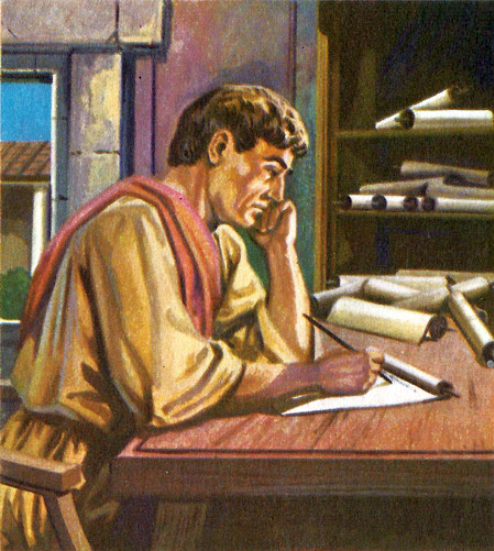
The race whose genius gave rise to the glories of Rome is, unhappily, not now in existence. Centuries of devastating wars, and foreign immigration into Italy, left but few real Latins after the early Imperial æra. The original Romans were a blend of closely related dolichocephalic Mediterranean tribes, whose racial affinities with the Greeks could not have been very remote, plus a slight Etruscan element of doubtful classification. The latter stock is an object of much mystery to ethnologists, being at present described by most authorities as of the brachycephalic Alpine variety. Many Roman customs and habits of thought are traceable to this problematical people.
It is a singular circumstance, that classic Latin literature is, save in the case of satire, almost wholly unrelated to the crude effusions of the primitive Latins; being borrowed as to form and subject from the Greeks, at a comparatively late date in Rome’s political history. That this borrowing assisted greatly in Latin cultural advancement, none may deny; but it is also true that the new Hellenised literature exerted a malign influence on the nation’s ancient austerity, introducing lax Grecian notions which contributed to moral and material decadence. The counter-currents, however, were strong; and the virile Roman spirit shone nobly through the Athenian dress in almost every instance, imparting to the literature a distinctively national cast, and displaying the peculiar characteristics of the Italian mind. On the whole, Roman life moulded Roman literature more than the literature moulded the life.
The earliest writings of the Latins are, save for a fragment or two, lost to posterity; though a few of their qualities are known. They were for the most part crude ballads in an odd “Saturnian” metre copied from the Etruscans, primitive religious chants and dirges, rough medleys of comic verse forming the prototype of satire, and awkward “Fescennine” dialogues or dramatic farces enacted by the lively peasantry. All doubtless reflected the simple, happy and virtuous, if stern, life of the home-loving agricultural race which was destined later to conquer the world. In B. C. 364 the medleys or “Saturæ” were enacted upon the Roman stage, the words supplemented by the pantomime and dancing of Etruscan performers who spoke no Latin. Another early form of dramatic art was the “fabula Atellana,” which was adapted from the neighbouring tribe of Oscans, and which possessed a simple plot and stock characters. While this early literature embodied Oscan and Etruscan as well as Latin elements, it was truly Roman; for the Roman was himself formed of just such a mixture. All Italy contributed to the Latin stream, but at no time did any non-Roman dialect rise to the distinction of a real literature. We have here no parallel for the Æolic, Ionic, and Doric phases of Greek literature.
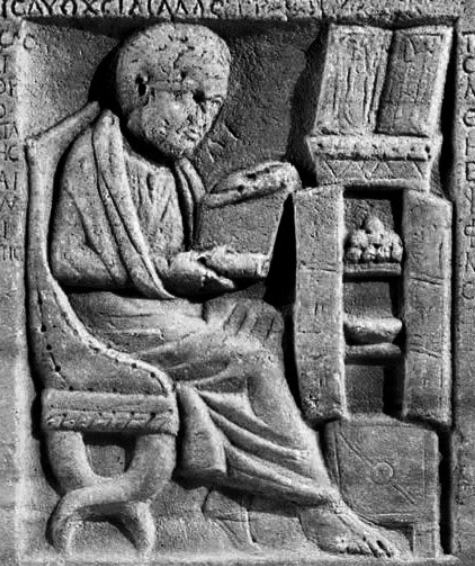
Classical Latin literature dates from the beginning of Rome’s free intercourse with Greece, a thing brought about by the conquest of the Hellenic colonies in Southern Italy. When Tarentum fell to the Romans in B. C. 272, there was brought to Rome as a captive and slave a young man of great attainments, by name Andronicus. His master, M. Livius Salinator, was quick to perceive his genius, and soon gave him his liberty, investing him according to custom with his own nomen of Livius, so that the freedman was afterward known as Livius Andronicus. The erstwhile slave, having established a school, commenced his literary career by translating the Odyssey into Latin Saturnian verse for the use of his pupils. This feat was followed by the translation of a Greek drama, which was enacted in B. C. 240, and formed the first genuinely classic piece beheld by the Roman public. The success of Livius Andronicus was very considerable, and he wrote many more plays, in which he himself acted, besides attempting lyric and religious poetry. His work, of which but 41 lines remain in existence, was pronounced inferior by Cicero; yet must ever be accorded respect as the very commencement of a great literature.
Latin verse continued to depend largely on Greek models, but in prose the Romans were more original, and the first celebrated prose writer was that stern old Greek hater, M. Porcius Cato (234-149 B. C.), who prepared orations and wrote on history, agriculture, and other subjects. His style was clear, though by no means perfect, and it is a source of regret that his historical work, the “Origines,” is lost. Other prose writers, all orators, extending from Cato’s time down to the polished period, are Lælius, Scipio, the Gracchi, Antonius, Crassus, and the celebrated Q. Hortensius, early opponent of Cicero.
Satire, that one absolutely native product of Italy, first found independent expression in C. Lucilius (180-103 B. C.), though the great Roman inclination toward that form of expression had already found an outlet in satirical passages in other sorts of writing. There is perhaps no better weapon for the scourging of vice and folly than this potent literary embodiment of wit and irony, and certainly no author ever wielded that weapon more nobly than Lucilius. His æra was characterised by great degeneracy, due to Greek influences, and the manner in which he upheld failing Virtue won him the unmeasured regard of his contemporaries and successors. Horace, Persius, and Juvenal all owe much to him, and it is melancholy to reflect that all his work, save a fragment or two, is lost to the world. Lucilius, sometimes called “The Father of Satire,” was a man of equestrian rank, and fought with Scipio at Numantia.
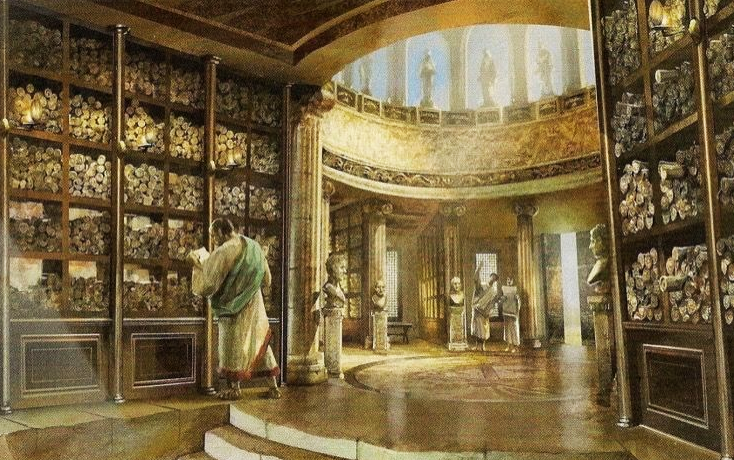
With the age of M. Tullius Cicero (106-43 B. C.)—the Golden Age—opens the period of highest perfection in Roman literature. It is hardly necessary to describe Cicero himself—his luminous talents have made him synonymous with the height of Attic elegance in wit, forensic art, and prose composition. Born of equestrian rank, he was educated with care, and embarked on his career at the age of twenty-five. His orations against L. Sergius Catilina during his consulship broke up one of the most dastardly plots in history, and gained for him the title of “Father of His Country.” Philosophy claimed much of his time, and his delightful treatises “De Amicitia” and “De Senectute” will be read as long as friendship endures on earth, or men grow old. Near the end of his life Cicero, opposing the usurpations of M. Antonius, delivered his masterpieces of oratory, the “Philippics,” modelled after the similar orations of the Greek Demosthenes against Philip of Macedonia. His murder, demanded by the vengeful Antonius in the proscription of the second triumvirate, was the direct result of these Philippics. Contemporary with Cicero was M. Terentius Varro, styled “most learned of the Romans,” though ungraceful in style. Of his works, embracing many diverse subjects, only one agricultural treatise survives.
In this survey we need allot but little space to Caius Julius Cæsar, probably the greatest human being so far to appear on this globe. His Commentaries on the Gallic and Civil Wars are models of pure and perspicuous prose, and his other work, voluminous but now lost, was doubtless of equal merit. At the present time, passages of Cæsar’s Gallic War are of especial interest on account of their allusions to battles against those perpetual enemies of civilisation, the Germans. How familiar, for instance, do we find the following passage from Book Six, describing German notions of honour:
“Latrocinia nullam habent infamiam, quæ extra fines cujusque civitatis fiunt, atque ea juventutis exercendæ ac desidiæ minuendæ causa fieri prædicant!”[1]
The next generation of authors fall within what has been termed the “Augustan Age,” the period during which Octavianus, having become Emperor, encouraged letters to a degree hitherto unknown; not only personally, but through his famous minister Mæcenas (73-8 B. C.). The literature of this period is immortal through the genius of Virgil, Horace, and Ovid, and has made the name “Augustan” an universal synonyme for classic elegance and urbanity. Thus in our own literary history, Queen Anne’s reign is known as the “Augustan Age” on account of the brilliant wits and poets then at their zenith. Mæcenas, whose name must ever typify the ideal of munificent literary patronage, was himself a scholar and poet, as was indeed Augustus. Both, however, are overshadowed by the titanic geniuses who gathered around them.
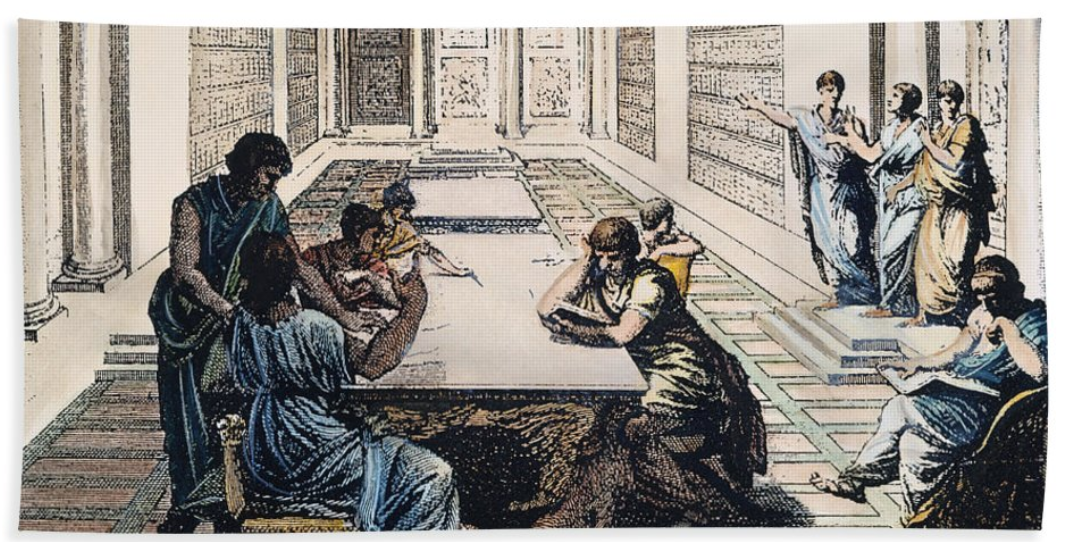
Succeeding the Golden Age, and extending down to the time of the Antonines, is the so-called “Silver Age” of Latin literature, in which are included several writers of the highest genius, despite a general decadence and artificiality of style. In the reign of Tiberius we note the annalists C. Velleius Paterculus and Valerius Maximus, the medical writer, A. Cornelius Celsus, and the fabulist Phædrus, the latter a freedman from Thrace who imitated his more celebrated predecessor Æsop.
The satirist, A. Persius Flaccus (34-62 A. D.), is the first eminent poet to appear after the death of Ovid. Born at Volaterræ of an equestrian family, carefully reared by his gifted mother, and educated at Rome by the Stoic philosopher Cornutus, he became famous not only as a moralist of the greatest power and urbanity, but as one whose life accorded perfectly with his precepts; a character of unblemished virtue and delicacy in an age of unprecedented evil. His work, which attacked only the less repulsive follies of the day, contains passages of the highest nobility. His early death terminated a career of infinite promise.
In the person of D. Junius Juvenalis (57-128 A. D.), commonly called Juvenal, we behold the foremost satirist in literary history. Born at Aquinum of humble but comfortably situated parents, he came to Rome as a rhetorician; though upon discovering his natural bent, turned to poetical satire. With a fierceness and moral seriousness unprecedented in literature, Juvenal attacked the darkest vices of his age; writing as a relentless enemy rather than as a man of the world like Horace, or as a detached spectator like Persius. The oft repeated accusation that his minute descriptions of vice shew a morbid interest therein, may fairly be refuted when one considers the almost unthinkable depths to which the republic had fallen. Only a tolerant or a secluded observer could avoid attacking openly and bitterly the evil conditions which obtruded themselves on every hand; and Juvenal, a genuine Roman of the active and virtuous old school, was neither tolerant nor secluded. Juvenal wrote sixteen satires in all, the most famous of which are the third and tenth, both imitated in modern times with great success by Dr. Johnson. Contemporary with Juvenal was the Spaniard, M. Valerius Martialis (43-117 A. D.), commonly called Martial, master of the classic epigram. Unsurpassed in compact, scintillant wit, his works present a subjective and familiar picture of that society which Juvenal so bitterly attacked from without.
We come now upon one of the most distressing spectacles of human history. The mighty empire of Rome; its morals corrupted through Eastern influences, its spirit depressed through despotic government, and its people reduced to mongrel degeneracy through unrestrained immigration and foreign admixture; suddenly ceases to be an abode of creative thought, and sinks into a mental lethargy which dries up the very fountains of art and literature. The Emperor Constantinus, desirous of embellishing his new capital with the most magnificent decorations, can find no artist capable of fashioning them; and is obliged to strip ancient Greece of her choicest sculptures to fulfil his needs. Plainly, the days of Roman glory are over; and only a few and mainly mediocre geniuses are to be expected in the years preceding the actual downfall of Latin civilisation.
It is interesting, in a melancholy way, to trace the course of Roman poetry down to its very close, when it is lost amidst the darkness of the Middle Ages. Claudius Rutilius Namatianus, who flourished in the 5th century, was a Gaul, and wrote a very fair piece culled the “Itinerarium,” describing a voyage from Rome to his native province. Though inferior to his contemporary, Claudian, in genius, Rutilius excels him in purity of diction and refinement of taste. At this period, pure Latin was probably confined to the highest circles, the masses already using that eloquium vulgare which later on formed the several modern Romance Languages; hence Rutilius must have been in a sense a classical antiquarian.
The end draws near. Compilers, grammarians, critics, commentators, and encyclopædists; summarising the past and quibbling over technical minutiæ; are the last survivors of a dying literature from whence inspiration has already fled. Macrobius, a critic and grammarian of celebrity, flourished in the fourth or fifth century, and interests us as being one through knowledge of whose works Samuel Johnson first attracted notice at Oxford. Priscian, conceded to be one of the principal grammatical authorities of the Roman world, flourished about the year 500. Isidorus Hispalensis, Bishop of Seville, grammarian, historian and theologian, was the most celebrated and influential literary character of the crumbling Roman fabric, save the philosopher Boetius and the historian Cassiodorus, and was highly esteemed during the Middle Ages, of which, indeed, he was as much a part, as he was a part of expiring classicism.
Now falls the curtain. Roma fuit. At the time of Isidorus’ death in A. D. 636, the beginnings of mediævalism were fully under way. Authorship had disappeared in the broader sense; learning, such as it was, had retired into the monasteries; whilst the populace of the erstwhile Empire, living side by side with the invading barbarians, no longer spoke a language justly to be called classical Latin. With the revival of letters we shall see more Latin writings, but they will not be Roman; for their authors will have new and strange idioms for their mother-tongues, and will view life in a somewhat different manner. The link of continuity will have been irreparably broken, and these revivers will be Romans only in an artificial and antiquarian sense. He who calls himself “Pomponius Lætus” will be found to have been baptised Pomponio Leto. Classical antiquity, with its simple magnificence, can never return.
In glancing back over the literature we have examined, we are impressed by its distinctiveness, despite its Greek form. It is truly characteristic of the Roman people, and expresses Rome’s majestic mind in a multitude of ways. Law, order, justice, and supremacy; “these things, O Roman, shall to you be arts!” All through the works of Latin authors runs this love of fame, power, order, and permanence. Art is not a prime phase of life or entirely an intrinsic pleasure, but a means of personal or national glorification; the true Roman poet writes his own epitaph for posterity, and exults in the lasting celebrity his memory will receive. Despite his debt to Hellas, he detests the foreign influence, and can find no term of satirical opprobrium more biting than “Græculus.” The sense of rigid virtue, so deficient in the Greek, blossoms forth nobly in the Roman; making moral satire the greatest of native growths. Naturally, the Roman mind is most perfectly expressed in those voluminous works of law, extending all the way down to the Byzantine age of Justinianus, which have given the modern world its entire foundation of jurisprudence; but of these, lack of space forbids us to treat. They are not, strictly speaking, a part of literature proper.
The influence of the Latin classics upon modern literature has been tremendous. They are today, and will ever be, vital sources of inspiration and guidance. Our own most correct age, that of Queen Anne and the first three Georges, was saturated with their spirit; and there is scarce a writer of note who does not visibly reflect their immediate influence. Each classic English author has, after a fashion, his Latin counterpart. Mr. Pope was a Horace; Dr. Johnson a Juvenal. The early Elizabethan tragedy was a reincarnation of Seneca, as comedy was of Plautus. English literature teems with Latin quotations and allusions to such a degree that no reader can extract full benefit if he have not at least a superficial knowledge of Roman letters.
Wherefore it is enjoined upon the reader not to neglect cultivation of this rich field; a field which offers as much of pure interest and enjoyment of necessary cultural training and wholesome intellectual discipline.
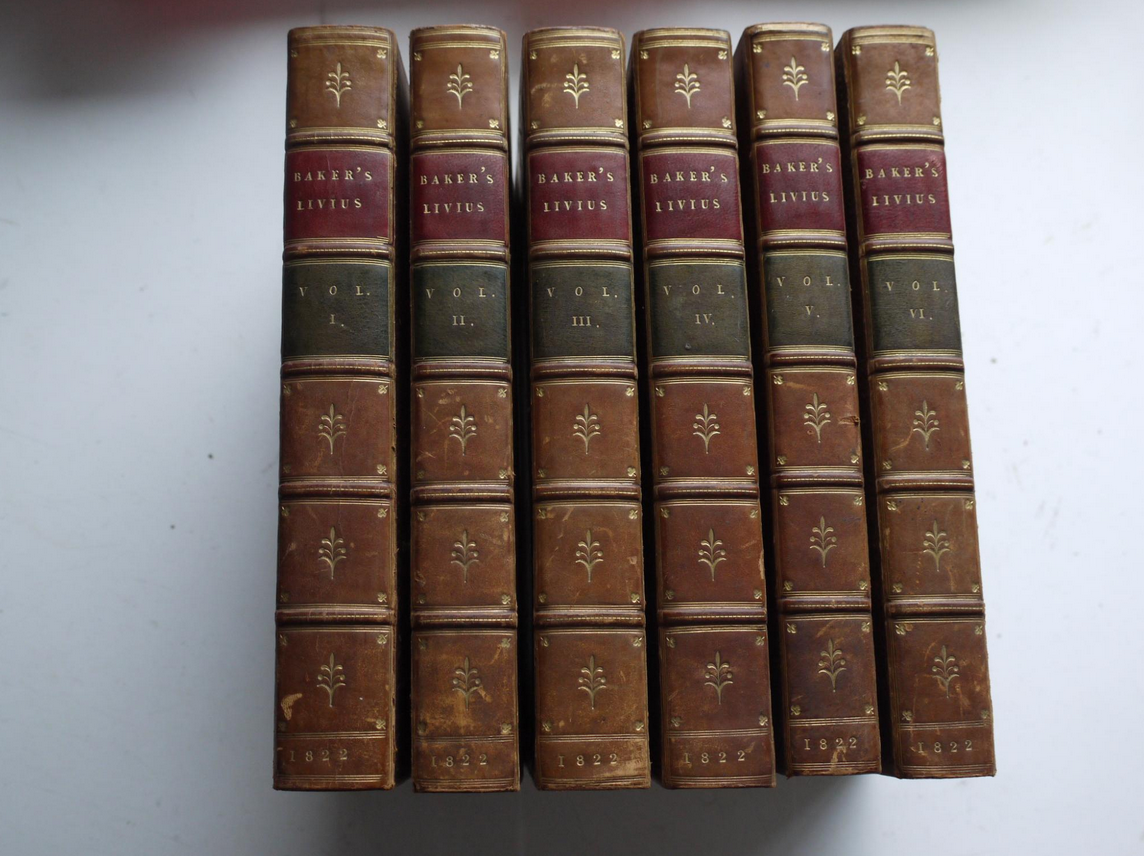
_______________________
[1] Translation by MOTW author Anglican: “Raids, which they make outside of the borders of each state [i.e., they don’t do it in their own territory], have no dishonor/shame, and they say this is done for the sake of exercising the young men and diminishing idleness.”
The strong anti-German bias of Lovecraft’s essay is unsurprising, given that it was written at the end of World War I.

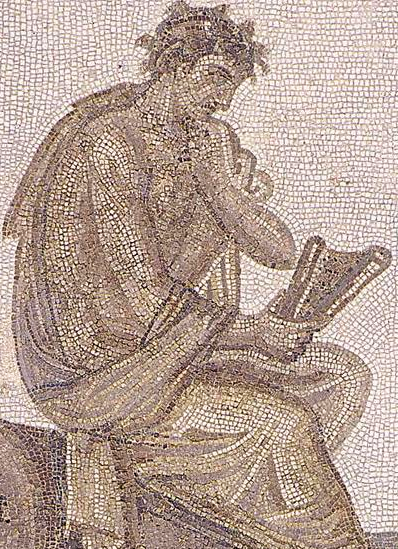

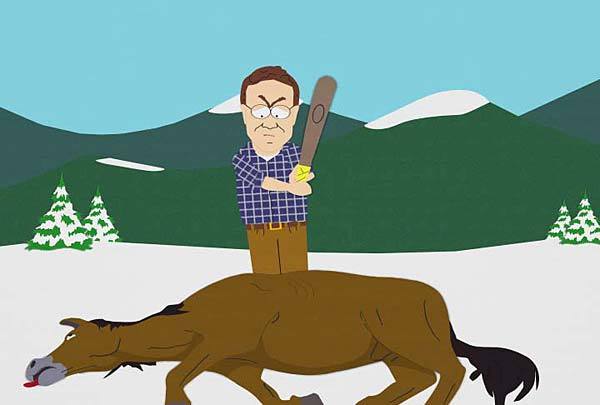






5
I love written artistry like this. Thank you.
[…] (Men of the West): Few students of mankind, if truly impartial, can fail to select as the greatest of human […]
[…] (Men of the West): Few students of mankind, if truly impartial, can fail to select as the greatest of human […]